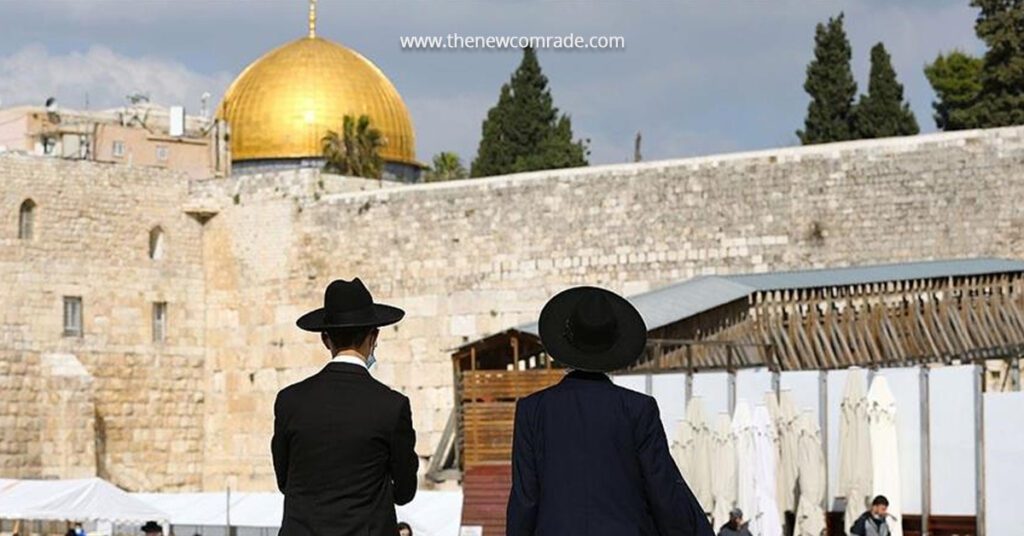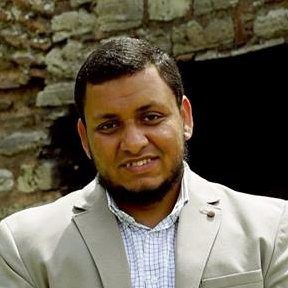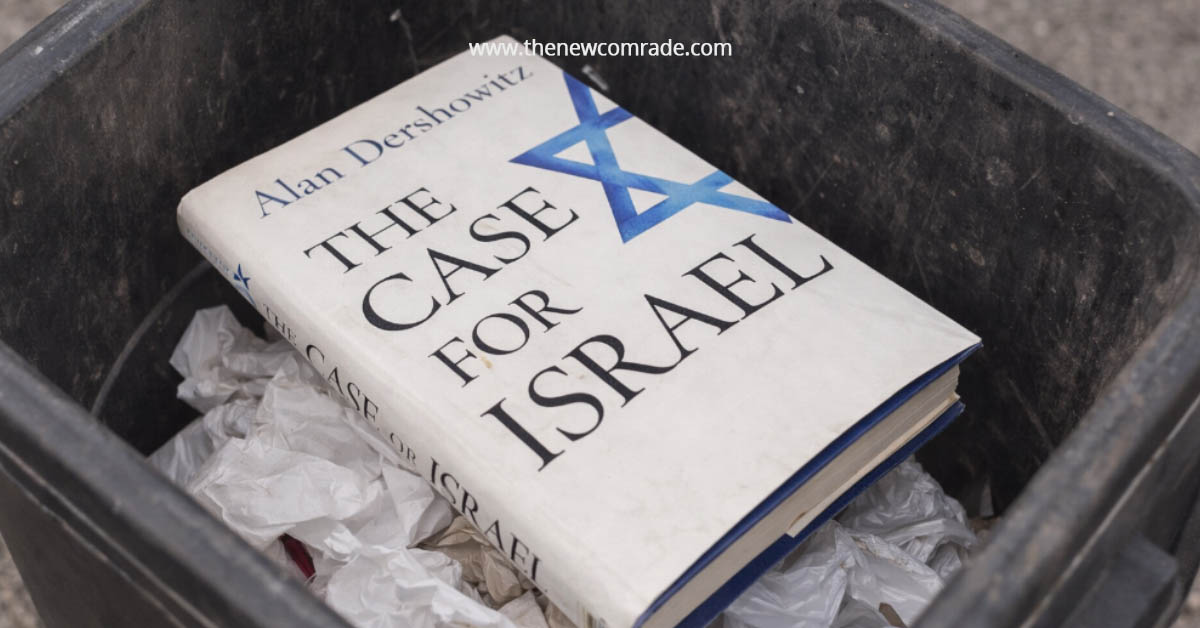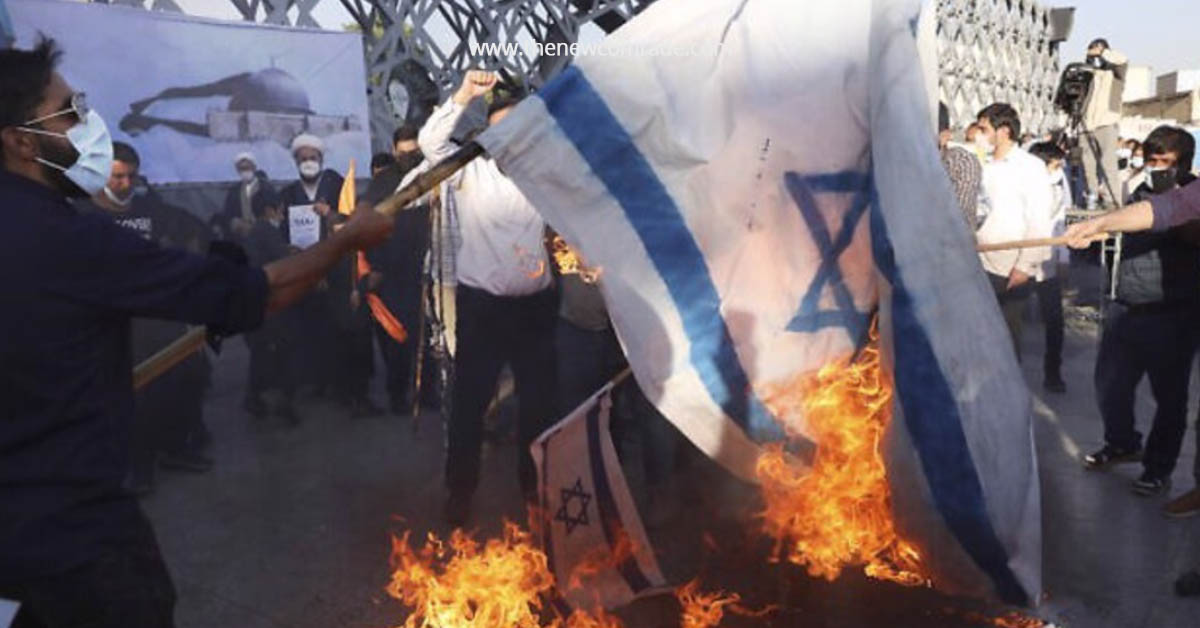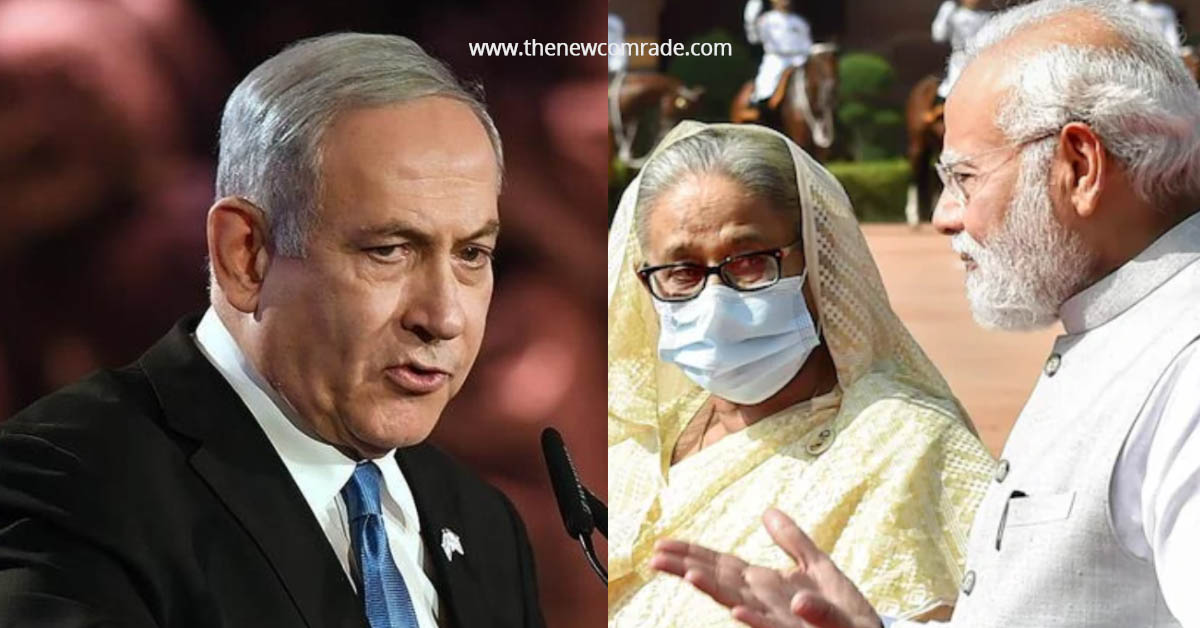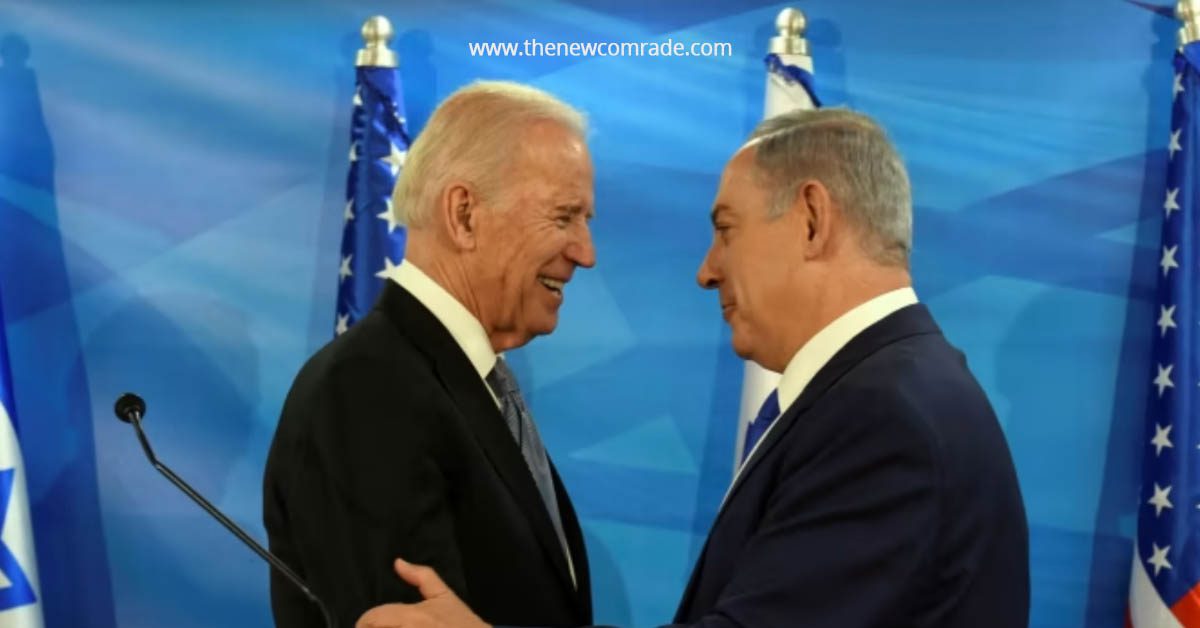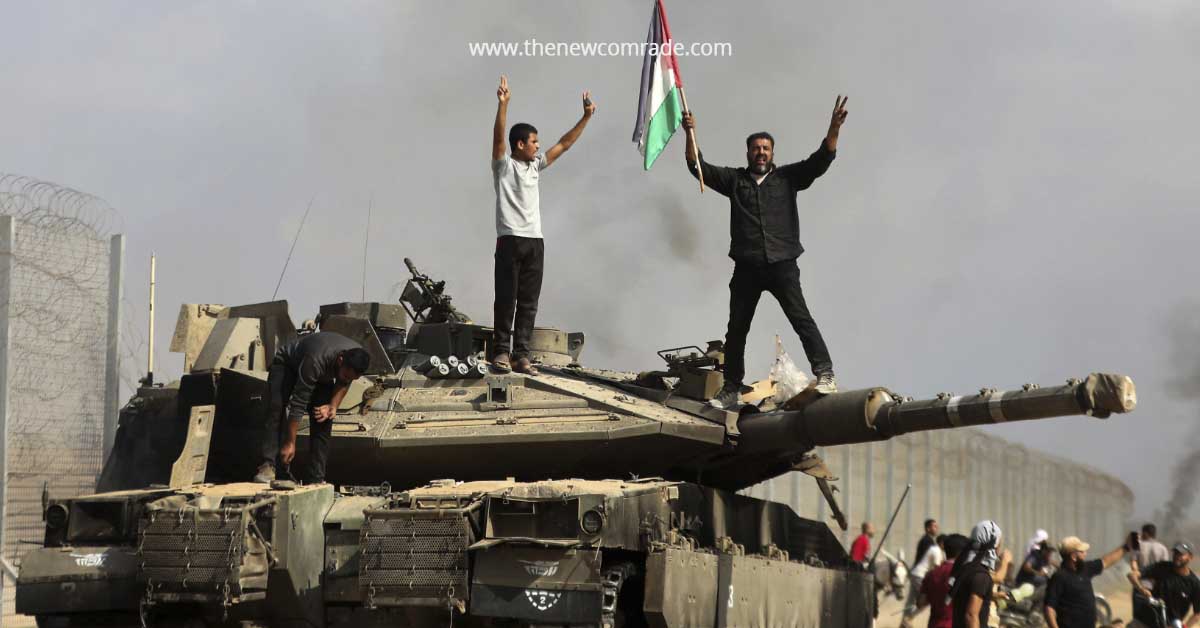Couple of days ago, Zionists carried out yet another incursion into the premises of the sacred Bayt al Maqdis, whereby throngs of settlers performed Talmudic rituals in its courtyard. This was followed by a frenzied celebration, during which those Zionists — Allah’s curse be upon them — collectively insulted our most honoured Prophet SAAWS.
Later, one of them got up in the Knesset and mocked the Israeli security services, which for years had prevented settlers from conducting such rituals in the past on the pretext that even if one Zionist were to pray at Masjid al-Aqsa, the entire West Asia would erupt in anger. He sarcastically jeered: “Thousands of Jews prayed, not just one; and nothing happened!”
Neither has the sight of Zionists’ incursions at Bayt al-Maqdis, nor those of the collective insults of our Holy Prophet SAAWS, these days cause any shock; it has become a recurrent scene.
It is a reflection of the dire state we have reached — more specifically, the state of ‘Muslim’ regimes and their rulers. It is, to some extent, understandable that these regimes are incapable of confronting the Zionists or inflicting any real damage upon them. That is no excuse though – many of these rulers have clung on to power for decades. If there had been one sincere and genuinely working for the advancement of his state to make it a formidable force not beholden to Zionist influence amongst them, he would have been in a position to respond, negotiate, retaliate, or at least threaten! But because they lack patriotism and a sense of belonging to the masses in their domains, their states have sunk further into humiliation, shame, and disgrace.
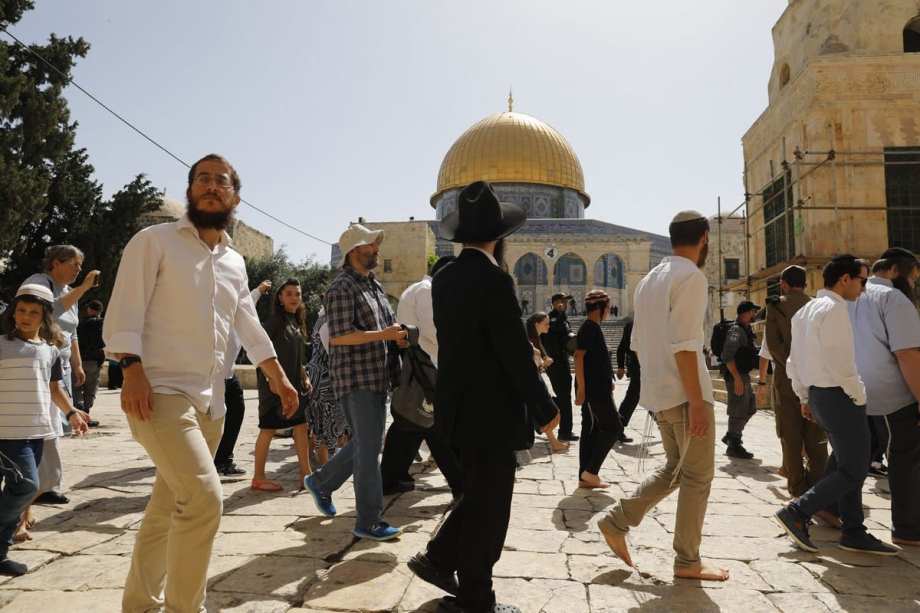
I repeat – while it could be understood that these regimes would not challenge the Zionists or prevent them from desecrating Masjid al-Aqsa and insulting our Prophet SAAWS, it is not justifiable that political and economic ties with the Zionists continue in spite of this. If these countries had people moved by religious conviction, or by genuine love for Prophet SAAWS, it would have got reflected in their actions and decisions.
What is particularly abominable — though not surprising for those who truly understand those regimes — is that these regimes and their rulers, including two claiming lineage to the Holy Prophet SAAWS while not having any genuine relation with Him, continue to strengthen ties with the Zionists, with ‘fear and desire’ and ‘faith and sincerity’. One of them keeps supplying Zionists with food, goods, and essential materials through open trade routes — routes that remain closed to resistance fighters. Another allows ships laden with weapons and ammunition destined to kill Muslims to dock in its ports for refuelling, repairs, and resupply. Of late, they have even conducted joint military exercises aimed at enhancing their capabilities to target Muslims in Gaza.
These actions are revealing and scandalous. To compare such rulers with the unjust tyrants of Muslim history is to indulge in myth: for never in the annals of Muslim history did even an oppressor openly allow the Holy Prophet SAAWS to be abused in front of him, then go on to support the enemies of Allah and His Holy Messenger SAAWS with money, arms, and stratagems!
This grim reality places a heavy and urgent responsibility on the shoulders of scholars and masses : the necessity to remove, isolate, and depose such rulers — if not as a religious obligation accounted for in the Hereafter, at least for the sake of dignified and decent worldly existence, which even a secularist concerned merely with worldly gains naturally seeks. If these rulers remain, and if the resistance in Palestine collapses, the Zionists would advance to insult the Holy Prophet SAAWS in Al-Azhar, Umayyad Mosque, and Masjid an-Nabawi. Why would they not? They already claim their dominion stretches from the Nile to the Euphrates.
Even for those concerned only with worldly affairs — for their own lives, for their children’s future — the threat of expansion posed by malignant and satanic Zionism must be confronted. Essential component of this confrontation is : support for the resistance in Palestine by all means possible, and also the removal of those regimes by every conceivable means.
Recently was the anniversary of the conquest of Kostantiniye (Istanbul), which took place on May 29, 1453 — some five centuries and seventy years ago. On this occasion, two cases of steadfastness merit deep reflection.
The first is the steadfastness of Kostantiniye itself. It resisted Muslim conquests for eight centuries, remaining unconquered throughout the Umayyad and Abbasid eras. Had it fallen during the initial waves of conquests, history may have unfolded differently — Islam could have spread across Europe within a century or two at most.
However, the city’s prolonged resistance, as the ancient fortress of Orthodox Christianity — allowed Europe and Western Christendom time to consolidate and strengthen. It enabled new centres of power to emerge, prepared to confront Islam anew, so that even when Kostantiniye fell, the hurdle of Christendom did not crumble. Merely forty years later, Christendom was conquering Andalus, discovering and colonising the Americas, and occupying Muslim territories in West Africa, North Africa, Southern Africa, and South Asia. These developments triggered cascading consequences still felt by the Muslim world till date.
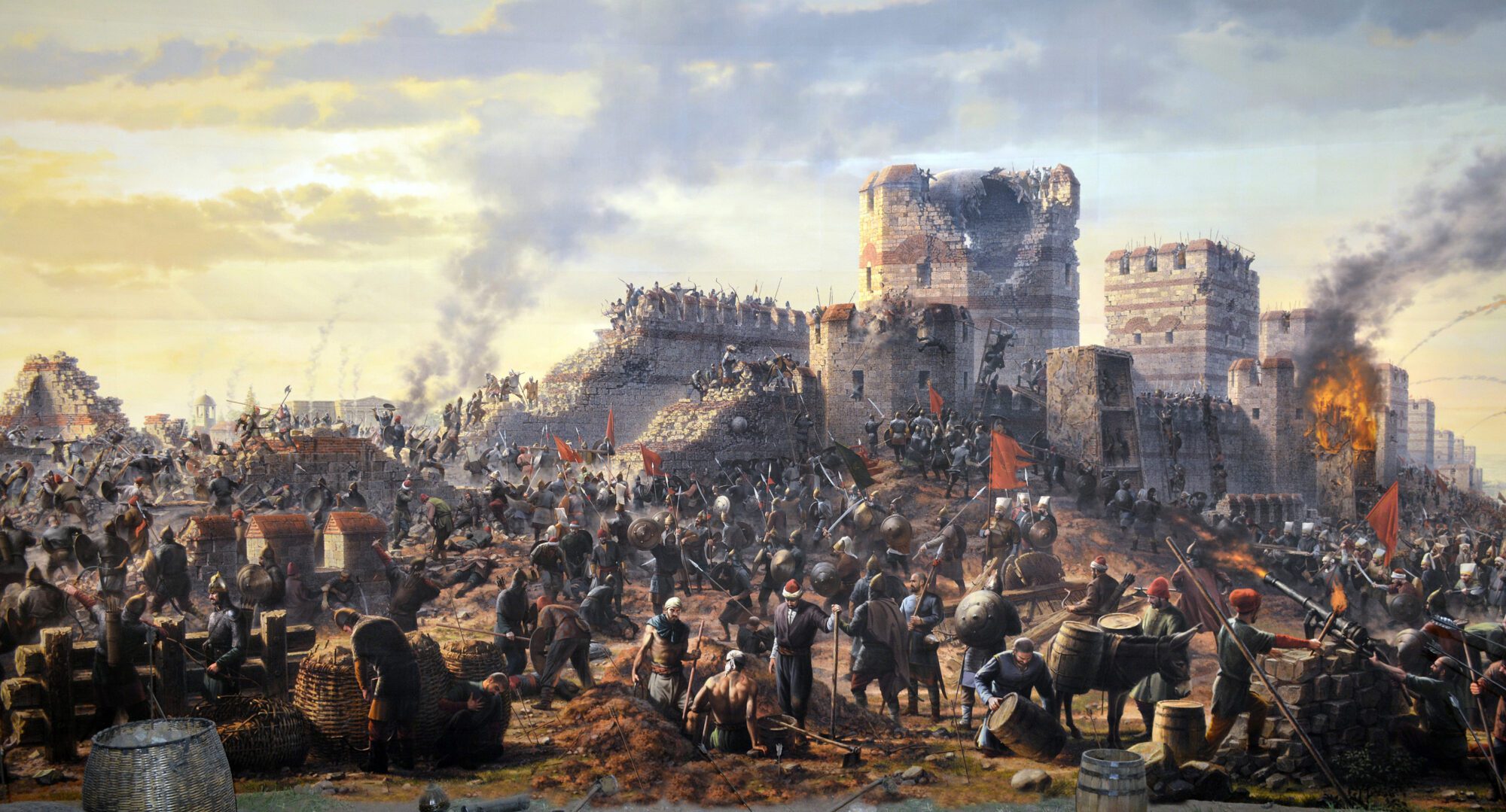
The second case is the steadfastness of Mehmet I, and his unwavering resolve to capture the formidable city. Despite extreme hardship, military setbacks, and pressure from advisors urging him to postpone the battle, he refused. His determination led to a moment of unprecedented military ingenuity : he transported ships overland to bypass the iron chain blocking the Golden Horn. That daring move brought about victory.
A single act of steadfastness can alter the map of history for decades, centuries, or even forever ; just as steadfastness on the opposite side could preserve the existing balance of power indefinitely.
History offers countless examples. Course of history is changed and reversed by means of battles. A decisive battle is often the result of a sequence of smaller actions — and one individual, at the right time and place, can redirect the course of events.
That is what Gaza is doing today. And that is precisely what the rest of Muslim states is failing to do. Gaza would reap the honour, reward, and victory of the present events, while the others would have regret, loss, and missed opportunities.
In this context, it is also worth noting that about a thousand years ago, in a summer much like the present one, Levant witnessed its final Muslim summer before being overrun by the Crusades. It suffices for the reader to know one key truth in that regard : the Crusades that reshaped history and whose effects linger to this day were the fruits of the success of a single campaign, viz. First Crusade. The remaining seven Crusades failed and returned defeated.
However, their initial triumph — our initial failure — emboldened them to launch eight more attempts over the next two centuries. The Muslim defeat in that first campaign revealed to the West that Ummah was fractured and vulnerable and that Bayt al-Maqdis could be seized from it. Had Muslims succeeded in repelling that first Crusade, Europe might have reconsidered the idea entirely, at least for a century, until collective memory dimmed and another attempt was made.
One who reads about Crusades would know well that the First Crusade’s success was not due to superior strength, but due to Muslim division and disunity. Time and again, Muslim forces had opportunities to crush the Crusaders, but they failed — not due to inferiority of arms or numbers, but because of infighting and disarray. These painful episodes cannot be elaborated upon here, but they remain agonisingly relevant.
For instance, the conflict between Kilij Arslan I and Gümüshtigin Danishmend allowed the Crusaders to seize the Seljuk capital in Asia Minor and press on to Ankara. The ruler of Antioch held out for aid for eight months while the Crusaders starved around him. Had he endured just three more days, the army of Mosul would have arrived. Had the Mosul army not been delayed — or its commander not been obstinate — it could have reclaimed Antioch. Had the relationships between military leaders been stronger, they could have protected the Levant. There are a hundred “ifs” in this history, any one of which could have spared the Muslim world immense bloodshed and loss — consequences that continue to haunt Ummah till date.
The parallels between that Crusade phase and our present situation are stark : in heroism and treachery, in foes and allies, in peoples and rulers, Orient and Occident.
Hence we could say about the current war in Gaza that the one who attains victory in it would open a strong stage in history.
This past and present converges in the annual, renewing and continuing worship rite, viz. Haj to the Sacred House of Allah — during the blessed first half of Dhu’l-Hijjah.
The insight of Prophet’s Companions RA is evident when they asked the Prophet SAAWS : “… Not even jihad in the way of Allah?” They understood that jihad is the pinnacle of all good deeds. Prophet SAAWS clarified that the only form of jihad equal to the deeds of these days is that of a man who sacrifices his wealth, his soul, and everything he owns for the sake of Allah and returns with nothing. From this, we understand that jihad during these blessed days holds unparalleled virtue ; whoever attains it earns an honour that cannot be matched.
Ummah contains principles – roots and seeds – with which it makes returns and rejuvenates itself. This sacred season which unites Ummah and this worship rite for which members of Ummah congregate, from different parts of the world, in one place, is such a foundation. Whoever sincerely prays at Masjid al-Haram and Masjid an-Nabawi necessarily remembers Masjid al-Aqsa.
Those who may differ in everything but unite here solely for the sake of Islam will, knowingly or unknowingly, experience that they are one Ummah that resists division and fragmentation — no matter how high walls or many borders may be created.
Whoever sheds worldly attire for the simplicity of Ihram, and hopes in Allah and Hereafter, will abandon his strong attachment to this transient world, recognising that only his deeds will accompany him on the Day of gathering in the hereafter, a situation similar to the gathering witnessed for Haj. He who sees the diversity of races, faces, languages, and cultures fraternised around him — performing tawaf as he does, performing sa’y as he does, praying as he does — will not forget his suffering brothers and sisters near and far. Haj is the fuel of faith that revives what some hoped would be forgotten or erased. With it, Islam remains deep-rooted, vibrant, renewed, and flourishing. Just as the pilgrims have gathered now, soon the battalions will gather. Masjid al-Aqsa will be liberated and prayed at, just as prayers were performed at Masjid al-Haram.
